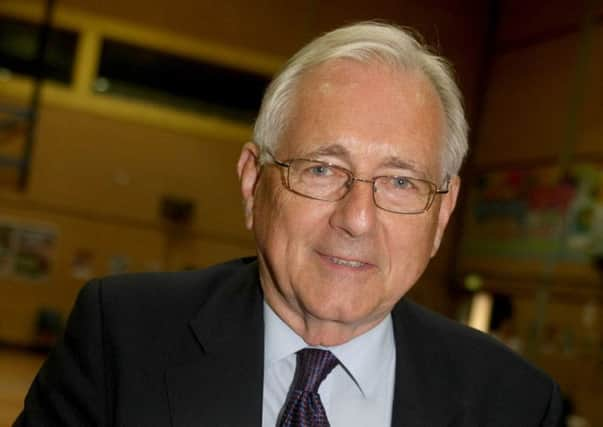SIR PETER BOTTOMLEY: Everyday lives


My sensible mother realised that the greatest gathering of her circles might come at her funeral. She would miss being there. Her solution? She saved her pension to give a 75th birthday party under the Wren library at Trinity College, Cambridge, inviting everyone she thought might come to her funeral if she did not out-live them. It was a great, cheerful gathering.
This week, I joined the congregation at All Souls, Langham Place to celebrate the lives of Sir Christopher Bland. We knew both Christopher Blands, introducing them when it became clear that they did not know each other. One was notable for creating the successful hovercraft service between Southsea, Portsmouth with Ryde, Isle of Wight; he also served as Lord Lieutenant.
Advertisement
Hide AdAdvertisement
Hide AdThe service was for the Christopher who might have become a writer after university. Instead, he went into business as a builder and a publisher. After chairing London Weekend Television, the BBC, British Telecom and the Royal Shakespeare Company, he returned to writing: the first book Ashes in the Wind is an often touching story of Ireland into and through The Troubles. The second was of the Cathars, a religious group nine hundred years ago in the Languedoc. Reflecting on the centenary of the Dublin revolt, he staged his touching play The Easter Rising and Thereafter.
One point that sticks in my mind is the foreign connection in the lives of many. Not all. When I was growing up, I was sometimes at holiday time working in the fields of Shropshire with agricultural labourers who might occasionally travel to the local market town. Their forefathers would only travel abroad at times of war.
Christopher was born in Japan because of his father’s work. He was at school and often in the care of extended family when his parents were in the Dominican Republic, most of the Caribbean island of Hispaniola.
The everyday lives of many have this interaction with family and friends. Sharing responsibility for children, sharing the care of the frail or very old can be planned. I argue also for preparing for the unplanned. As a god-parent and now a grandparent, I try to let the young know that when their lives are impossible or they feel that living at home is too grim, there is always sanctuary in our house. There are two conditions only: we can tell their parents they are safe and that after three days, we should be told the problem.
Advertisement
Hide AdAdvertisement
Hide AdAt the end of life, for those whose death may be noted in the local newspaper just as much as for the smaller number with national obituaries, there is usually a funeral or gathering. My suggestion is that we can each speak in advance or leave a note of our own preferences, if any.
My approach, if someone has died without doing so, is to suggest the kind of arrangements I might choose for myself, except that my body (when it is of no use to myself) might helpfully be available to a trainee surgeon. Perhaps a gathering rather than a funeral? I like remembering that my late brother’s eyes gave sight to the blind, making a difference to the everyday life of someone he did not meet and who we never knew.
---
Don’t miss out on all the latest breaking news where you live.
Here are four ways you can be sure you’ll be amongst the first to know what’s going on.
1) Make our website your homepage
2) Like our Facebook page
3) Follow us on Twitter
Advertisement
Hide AdAdvertisement
Hide Ad4) Register with us by clicking on ‘sign in’ (top right corner). You can then receive our daily newsletter AND add your point of view to stories that you read here.
And do share with your family and friends - so they don’t miss out!
Always the first with your local news.
Be part of it.